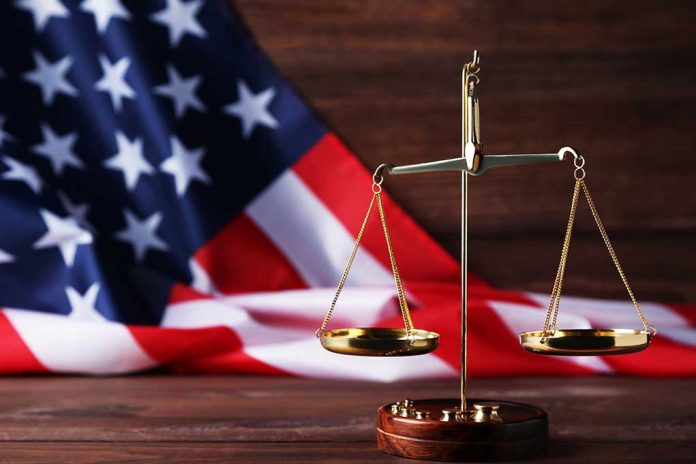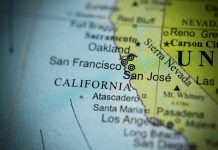
Legal dilemmas arise as Judge Friedrich probes the Justice Department’s defense of Trump’s pardons, with Dan Wilson’s case at its core.
Key Takeaways
- Questions surround the scope of Trump’s pardons, especially concerning separate offenses by Dan Wilson.
- Judge Friedrich critiques the inconsistent application of the pardons, affecting Wilson and other defendants.
- The government’s view on the pardons has shifted, prompting an emergency hearing.
- Friedrich contemplates a stay to allow Wilson to appeal without immediate imprisonment.
Legal Questions Surrounding Dan Wilson’s Case
Dan Wilson, charged with crimes during the January 6 Capitol unrest and separate gun charges in Kentucky, finds himself at the heart of a legal storm. A Justice Department prosecutor struggled to clearly explain the administration’s stance on Wilson’s existing pardon by President Trump and whether it could shield him from the gun charges levied in 2023. U.S. District Judge Dabney L. Friedrich grilled the government, questioning their changing position in the matter.
Friedrich noted the complication arising from the Justice Department’s claim that Wilson’s release was mistakenly granted post-Trump’s mass pardon. However, the judge was skeptical of assertions that Wilson’s pardon also covered unrelated offenses, emphasizing that presidential pardons must carry a specific, unwavering meaning. Friedrich succinctly put it, “The meaning of the pardon can’t be shifting from day to day.”
Controversy Over Interpretation of Pardons
Trump’s pardon of over 1,500 individuals involved in the Capitol riot included Wilson. However, the government later revised its position, spotlighting further ambiguity and the intent behind the pardons. Judge Friedrich is critical of this evolving stance, suggesting it’s problematic to retroactively modify the scope of a pardon. She highlighted, “The intent cannot evolve over time as new cases are brought to his attention.”
These deliberations bring to question if Trump’s mass pardon potentially shelters individuals beyond the immediate context of the Capitol unrest. The government argued Wilson’s case alongside others, asserting that Trump’s pardons don’t automatically apply to unrelated charges, reflecting the complexity arising from such a sweeping legal gesture.
Implications for Future Presidential Pardons
The outcome of Wilson’s legal battle may set a precedent for interpreting presidential pardons in the future. With Judge Friedrich taking the matter under advisement, there is a possibility for Wilson’s release to be stayed, pending appeal. The intricacies of this case may influence how broadly or strictly future pardons are granted and interpreted, leaving an indelible mark on the legal landscape.
This scenario highlights potential inconsistencies faced when the parameters of clemency are unclear. The justice system’s ability to provide coherent resolutions to these complex legal quandaries will be crucial in maintaining the sanctity of legal pardons and ensuring they do not become blanket immunities for future misconduct.
Sources:
- Judge criticizes Justice Department’s broad reading of Trump’s Capitol riot pardons – ABC News
- Federal judge grills Trump’s Justice Department over argument that Jan. 6 pardon covers a separate gun case













